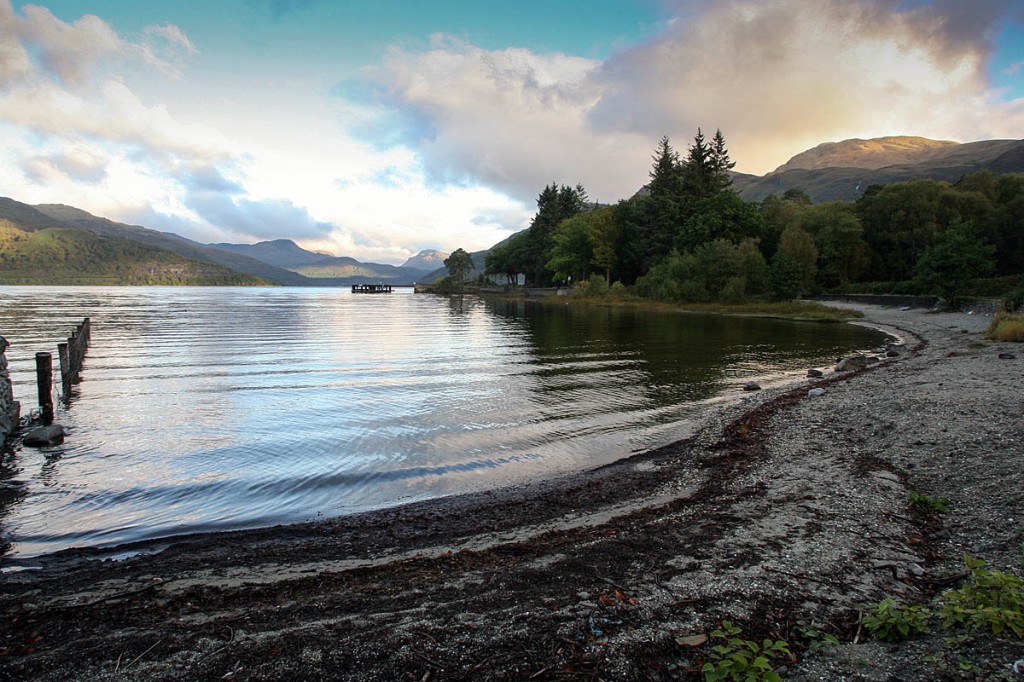Bosses of a national park at the centre of controversial plans to ban wild camping alongside some of its lochs said a large number of responses were received in a public consultation.
More than 350 submissions were received by the Loch Lomond & the Trossachs National Park Authority, many within the final few days of the exercise, which ended on Monday.
The authority said its officers will consider the responses before making a recommendation to its board.
Outdoor groups and commentators have condemned the plans, saying they undermine the right to camp responsibly enshrined in Scotland’s right to roam legislation, the Land Reform (Scotland) Act.
Helen Todd, campaigns and policy manager with Ramblers Scotland said: “We have lost confidence in the national park’s ability to resolve this dispute over camping bylaws.
“They listen to our concerns but make no effort to adjust their plans to take account of what is being said to them by outdoor organisations and experts. They are taking a much too narrow view of their responsibilities.
“By criminalising camping and other activities which are perfectly acceptable under Scotland’s right to roam legislation, the park authority would create immense public confusion over what is acceptable when taking access to our countryside.
Andrea Partridge, access officer with the Mountaineering Council of Scotland said: “It is truly disgraceful that Scotland’s first national park, with a primary purpose to promote public enjoyment of the countryside, is now proposing to remove a right to camp for the responsible majority.
“A right that was enshrined in law is being eroded by the very organisation that should be promoting and encouraging responsible access.”
But the authority’s new chief executive said the proposed changes are aimed at increasing access to the national park.
Gordon Watson, who takes up his position from Fiona Logan next week, said: “The debate on the Your Park consultation has shown that there are strongly held views on all sides.
“The proposals we’ve consulted on, which cover less than 5 per cent of the park and include significant investment in more camping facilities, are designed to promote more access in some of the busiest countryside in Scotland where over four million people visit each year.
“The bylaws proposed use powers already available under the National Parks (Scotland) Act 2000 and are designed to deliver the spirit of land reform access rights, by dealing with no-go areas and halting environmental damage caused by irresponsible camping and antisocial behaviour.
“The dramatic improvements seen on east Loch Lomond showcase how bylaws can be used to enhance access and enjoyment. The area has been transformed; with families flocking back to a place previously blighted by behaviours that were very far from the responsible ‘wild camping’ envisaged in the Land Reform Act.
“We welcomed the debate during the consultation, and will now carefully consider all the points made before making a recommendation to our board on our final proposals which will be submitted to our minister.”
The first wild camping ban was imposed on the eastern shore of Loch Lomond and along part of the route of the West Highland Way, Scotland’s most popular long-distance trail, in 2011.
At the time, Grant Moir, director of conservation and visitor experience for the park authority, said: “There are currently no plans to extend camping bylaws which have been piloted since June 2011 along the east side of Loch Lomond to other parts of Loch Lomond and the Trossachs national park.”
A Loch Lomond & the Trossachs national park spokesperson said, since the consultation began, the Your Park website received more than 6,000 visits from almost 5,000 users.
“In addition to canvassing opinion on the proposed byelaws, the national park took the opportunity to ask for people’s views on proposed additional camping provision. There were more than 200 responses to this part of the consultation.
“There have been a high number of responses in the last few days, so no detailed analysis is currently available.
“Park officials will now consider each response, weighting up the quality and validity of the points made and deciding what changes need to be made to the proposals. A recommendation will then be made to the national park’s board who, in turn, will advise Scottish Government.”
Among the proposals are a projected £10m public-private sector investment in camping facilities over the next five years; new bylaws making it an offence to cause damage to the natural environment and wildlife in the park; regulate where visitors can camp and manage how laybys are used; continued working with Police Scotland to enforce existing and proposed new legislation and education on respect for the national park with a focus on how to camp responsibly.

p ireland
15 January 2015Im glad there has been a ban on camping, I remember going to loch Lomond and seeing so much rubbish and disrespect of the place, I even saw a young man trying cut branches down to make fire. I hope the ban restores the area.
We noticed alcohol bottles and cans with reminents of fire wood ,well national park for making the decision